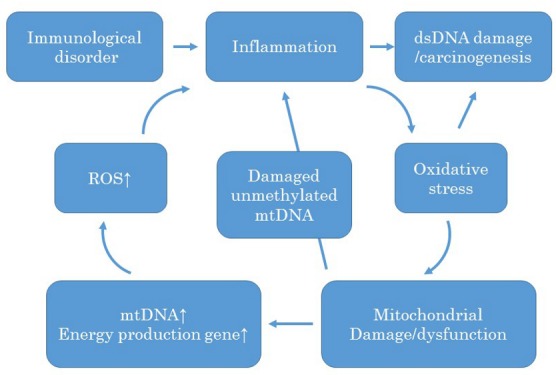Figure 4. Hypothesis of mitochondrial damage during UC-associated carcinogenesis. An immunological disorder triggers inflammation and then confers oxidative stress on the mtDNA. To compensate for the affected mitochondria, the number of mitochondria increases, and the expression of energy metabolism is up-regulated. The increased and activated mitochondria produce ROS, which accelerate further inflammation. The damaged mitochondrial DNA is another cause of inflammation; hence, it is unmethylated. The increased and continuous oxidative stress affects dsDNA and causes UC-associated carcinogenesis.

